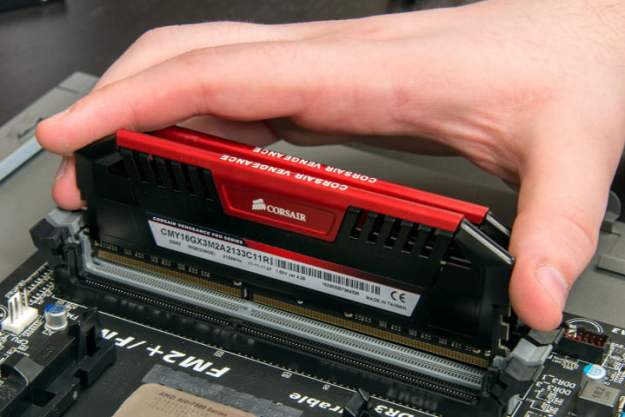
Nearly 10 months after the Guardian first reported that the National Security Agency (NSA) secretly collects the telephone metadata of virtually every landline call made in the United States, that program is set to undergo dramatic changes. Reports from The New York Times and Wall Street Journal reveal that both the Obama administration and members of Congress plan to push legislation that – if enacted – would, in some ways, “end” the NSA’s bulk telephone metadata collection program, which operates under Section 215 of the Patriot Act. What does this mean for Americans’ privacy? Here’s everything you need to know.
Wait – what is ‘metadata’ again?
Telephone metadata is all the information related to a phone call aside from the contents of the call itself. That means a whole bunch of numbers – outgoing and incoming phone numbers involved in a call, time and duration of a call, sometimes location data of a mobile call, and sometimes the device ID numbers of the phones involved in calls.
This information is used by the NSA to see who is talking to whom (among other things). And while it does not include recordings of what’s said during calls, metadata alone can reveal a vast amount of information about people’s lives.
Obama’s plan
At the moment, there appear to be two plans in the works, and both would effectively do the same thing – the difference, along with the devil, is in the details.
First, the Obama administration reportedly plans to transfer the collection of telephone metadata to the telephone companies (which are already collecting that data anyway). They would not be required to hold the data for longer than the current 18-month maximum. The NSA, by contrast, currently holds telephone metadata for up to five years.
Using this new court order, the NSA would have access to the call history of targeted numbers.
Here’s the catch for privacy advocates: Most of the telephone metadata the NSA currently collects pertains to calls made on landline phones. Data from calls made from most mobile phones are not collected. The Obama plan would change that, the LA Times reports, by expanding “the universe of calling records the agency can access.”
This plan, if enacted by Congress, would essentially make good on President Obama’s promise to end the NSA’s bulk telephone metadata collection – but it would still allow the NSA to access that data as it deems necessary, and greatly expand the types of call data it can collect.
Rogers and Ruppersberger plan

The second option is reportedly set to come from leadership of the House Intelligence Committee: Chairman Mike Rogers (R – MI) and ranking Democrat Rep. C.A. “Dutch” Ruppersberger (D – MD). As the Wall Street Journal reports, Obama’s proposal and the forthcoming House bill would do basically the same thing – but the House bill wouldn’t require the government agencies (i.e. the NSA and FBI) to obtain a judge’s approval before obtaining data, something civil liberty advocates are sure to oppose. It would, however, require a court to “promptly” approve the data request once it’s been made to a phone company. If the court rejects the request, any data the government obtains would have to be deleted.
But that’s not all …
While the Obama proposal would apply specifically to telephone metadata collection, the House bill goes much further into our digital lives.
Dubbed the “End Bulk Collection Act of 2014,” the House bill would reform the Foreign Intelligence Surveillance Act to prevent government collection of “records of any electronic communication without the use of specific identifiers or selection terms,” according to the Guardian, which obtained a copy of the bill. As the Washington Post reports, that means it would end all bulk collection of “any electronic communication,” according to Rogers and Ruppersberger – both of whom have vigorously defended the NSA’s surveillance activities. That likely includes emails, text messages, and Internet activity.
Civil liberties advocates are already calling foul on the House bill.
Thanks to the retroactive approval of phone metadata collection, the lowered standard for the collection of electronic communications, and the fact that Rogers and Ruppersberger have consistently proposed legislation that increases the government’s ability to collect information from Internet users (remember CISPA?) , civil liberties advocates are already calling foul on the House bill.
“As a general rule, whenever Mike Rogers … claims a bill does something particular – like, say, protect your privacy – it’s actually a fairly safe assumption that the opposite will end up true,” Trevor Timm, executive director of the Freedom of the Press Foundation, writes in the Guardian. “His new bill seems to have the goal of trading government bulk collection for even more NSA power to search Americans’ data while it sits in the hands of the phone companies.”
Two imperfect options
While both of these options appear to effectively end the NSA’s metadata collection, neither are perfect, according to privacy advocates. In a level-headed response to the reported plans, Harley Geiger, Senior Counsel at the Center for Democracy & Technology, summed up the situation thusly:
“While each proposal represents a step forward, each also has a fatal flaw. The Ruppersberger bill would end bulk collection for most types of data, but the bill would allow intelligence agencies to obtain individuals’ data without prior court approval. The President’s proposal, as described, would require intelligence agencies to get court approval before obtaining phone records, but the Obama proposal is only limited to phone records. Combined, these two proposals would get us close to where we need to be, but separately they fall short of what is needed.”
What next?
Obama had originally ordered the Justice Department and intelligence officials to finalize their plan for ending the NSA’s collection of telephone metadata by March 28 – this Friday – which is when the current 90-day order from the Foreign Intelligence Surveillance Court (FISC) that allows the program to continue expires. Seeing as the proposal is reportedly still in the works, however, it’s all but guaranteed that FISC will reauthorize the order for another 90 days. In other words, the NSA’s telephone metadata collection likely won’t stop for at least another three months.
As for the End Bulk Collection Act of 2014 – that’s still in its early stages. (It is set to go public today, March 25, and I’ll update this with a link to the text as soon as it does. Update: Here’s the bill.) Then, of course, it has to go through all the regular avenues of Congress before it can go into effect, as does the Obama plan. So neither are going to come into effect immediately.
(Image © maradonna 8888 via Shutterstock)
Editors' Recommendations
- Are WhatsApp and Facebook down? Here’s what you need to know
- What is an eSIM? Here’s everything you need to know
- Lapse app: what you need to know about the new Instagram killer
- Does the iPhone 15 fold? What you need to know
- Instagram Threads: what you need to know, and how to sign up


